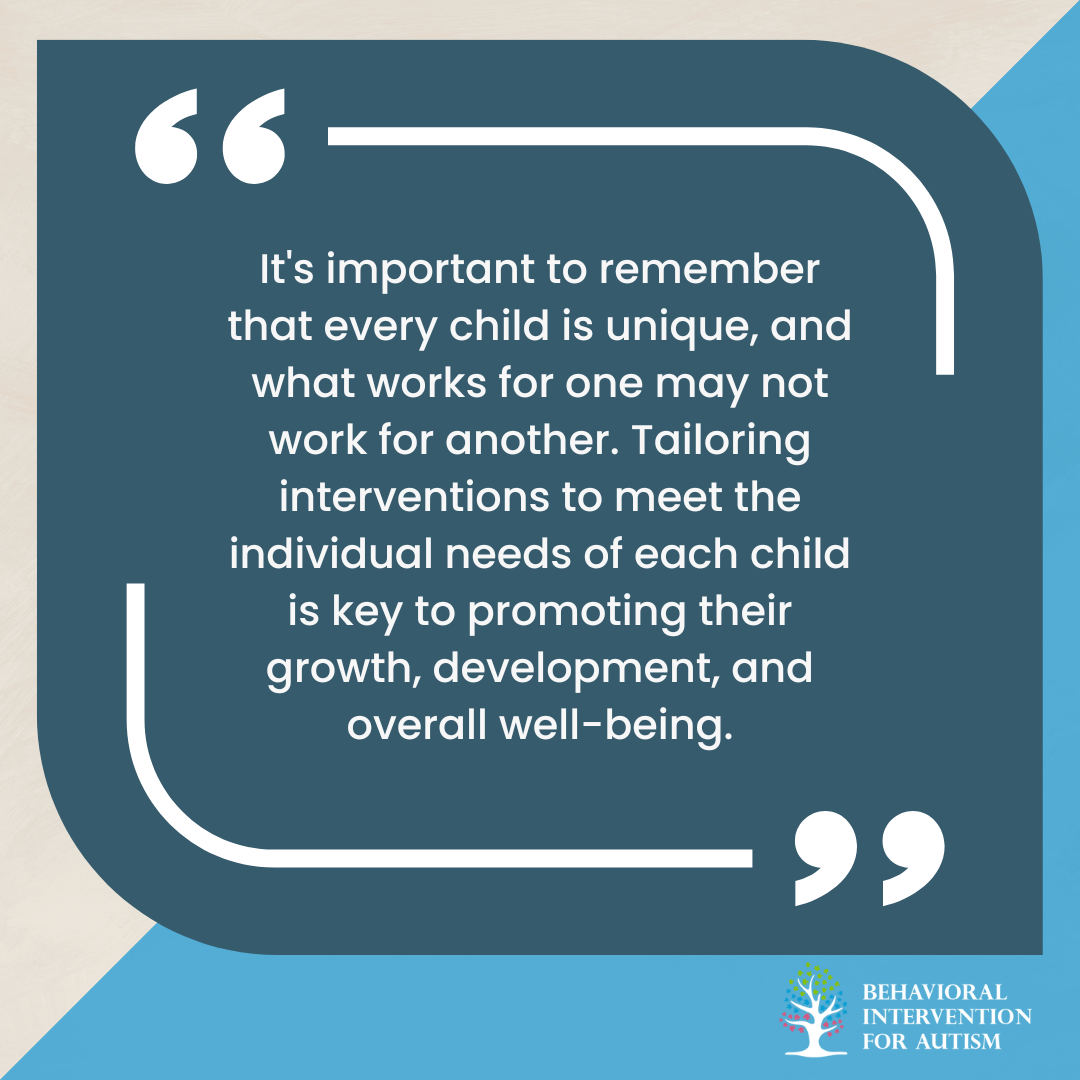
Table of Contents
To truly nurture the abilities of autistic children, it is crucial to first understand the nature of autism. This section provides insight into the spectrum of autism and the transition to adulthood that individuals with autism may experience.
Spectrum of Autism
Autism is a spectrum disorder, which means that it encompasses a wide range of abilities and challenges. Some autistic individuals may have exceptional talents or skills, while others may require more support in certain areas. The spectrum includes individuals who are highly independent and function well in society, as well as those who may have more significant support needs.
It is important to recognize that each individual with autism is unique, with their own strengths and challenges. The term “neurodiversity” is often used to celebrate the diverse range of neurological differences, including autism, and promote acceptance of individuals with autism for who they are.
Transition to Adulthood
As children with autism grow older, it becomes essential to plan for their transition to adulthood. Transition planning should ideally begin around the age of 16, with goals set for vocational training, postsecondary education, employment, and independent living. This planning is typically done in collaboration with the educational system, using an Individualized Education Plan (IEP).
The transition to adulthood for individuals with autism may involve various considerations, such as identifying suitable vocational training programs, exploring postsecondary education options, and developing skills for independent living. It is important to recognize that the needs and goals of each individual may differ, and the transition planning should be tailored to their specific needs.
Research has shown that active participation in transition planning and goal-setting can have a positive impact on college enrollment among individuals with autism spectrum disorders. The Department of Education provides a Transition Guide to Postsecondary Education and Employment for students and youth with disabilities, including autism, to assist in the transition to adulthood.
By understanding the spectrum of autism and the unique challenges that come with it, parents, caregivers, and educators can better support individuals with autism as they navigate the journey towards adulthood. With the right resources, therapies, and support system in place, individuals with autism can lead fulfilling lives and achieve their full potential.
Therapies for Autistic Children
There are various therapies and interventions that can make a significant difference in the development of children with autism. Two important approaches to consider are early intervention and stem cell therapy.
Early Intervention
Early intervention plays a vital role in supporting the development of autistic children. The earlier the intervention begins, the greater the potential for positive outcomes. Early intervention programs are designed to address the unique needs of children on the autism spectrum and provide targeted support to enhance their communication, social skills, and overall development.
Some commonly used early intervention therapies for autistic children include:
- Applied Behavior Analysis (ABA): ABA is a scientifically validated approach which focuses on teaching socially significant behaviors and reducing difficult behaviors. It mainly involves breaking down skills into smaller and manageable steps while using positive reinforcement to promote desired behaviors.
- Speech Therapy: Many autistic children face challenges in communication and language development. Speech therapy helps them improve their verbal and nonverbal communication skills, express their needs and emotions, and enhance their social interactions.
- Occupational Therapy: Occupational therapy aims to improve the child’s ability to engage in everyday activities, such as self-care, play, and school-related tasks. It focuses on sensory integration, fine and gross motor skills, and developing strategies to cope with sensory sensitivities.
Stem Cell Therapy
Stem cell therapy is an emerging field that holds promise for individuals with autism. This innovative therapy involves the use of stem cells to promote neurodevelopment and improve cognitive, learning, and behavioral abilities in autistic individuals.
It’s important to note that stem cell therapy for autism is still an evolving area of research, and more studies are needed to fully understand its long-term effects and benefits. However, the initial results are promising, offering hope to families seeking alternative treatments for their children.
Before considering any therapy, it’s crucial to consult with healthcare professionals, specialists, and experts in the field of autism. They can provide guidance, evaluate the individual’s specific needs, and recommend the most appropriate therapies based on their unique circumstances.
Progression of Autism Symptoms
Understanding the progression of autism symptoms is essential for parents and caregivers of individuals on the autism spectrum. While autism is a lifelong condition, experts have discovered that certain children initially diagnosed with autism spectrum disorder (ASD) may see changes in their symptoms as they grow older. In some cases, proper treatment can significantly reduce the severity of autism symptoms.
Factors Influencing Severity
Several factors can influence the severity of autism symptoms in children. One significant factor is the child’s IQ (intelligence quotient). A study revealed that children with higher IQs at ages 3 and 6 tended to experience a decrease in symptom severity and an increase in IQ during early childhood. On the other hand, children with lower IQs tended to have stable symptoms.
Another interesting finding from the study was the difference in symptom improvement between boys and girls. More girls showed a higher percentage of symptom improvement compared to boys. This difference could be attributed to girls potentially engaging in camouflaging or masking their autism symptoms to align with social expectations. Further research is necessary to fully understand the underlying reasons for these gender differences.
Understanding the progression of autism symptoms is crucial for parents and caregivers as it helps them anticipate and adapt to the changing needs of their child. Early intervention, therapy, and support systems play a vital role in addressing the unique challenges faced by individuals on the autism spectrum.
While it is not possible to predict the exact trajectory of an individual’s autism symptoms, it is important to remember that with the right support and interventions, individuals with autism can lead fulfilling and meaningful lives.
Success Stories
When it comes to autism, every individual’s journey is unique. While autism is a lifelong condition, it is important to recognize that many individuals with autism can achieve significant progress and lead fulfilling lives. In this section, we will explore real-life examples of individuals who have overcome challenges associated with autism and achieved a sense of normalcy.
Real-Life Examples
There are numerous success stories of individuals with autism who have defied expectations and surpassed initial prognoses. These stories highlight the incredible potential for growth and development in autistic individuals. Here are a few inspiring examples:
- Temple Grandin: Temple Grandin, a renowned animal scientist, author, and autism advocate, is a prime example of a successful individual with autism. Despite facing challenges in social interactions, Temple Grandin utilized her unique perspective and exceptional visual thinking abilities to revolutionize the livestock industry. Today, she is recognized globally for her contributions and advocacy for individuals on the autism spectrum.
- Darryl Hannah: Darryl Hannah, a well-known actress, is another example of an individual who has thrived with autism. While struggling with social interactions and sensory sensitivities, Darryl Hannah pursued a successful acting career, starring in numerous films and captivating audiences worldwide.
- John Elder Robison: John Elder Robison, an author and speaker, has made significant contributions to the autism community. Despite challenges related to communication and social skills, Robison has become an advocate for autism acceptance and understanding. His books and public speaking engagements have helped raise awareness and promote a better understanding of autism.
Achieving Normalcy
It is important to note that the definition of “normalcy” varies from person to person, and there is no one-size-fits-all approach. However, many individuals with autism have been able to achieve a sense of normalcy in various aspects of their lives. With early intervention, therapies, and support systems, autistic individuals can develop skills that allow them to participate in social, educational, and professional activities.
Proper treatment and support can significantly impact an autistic individual’s quality of life. While some individuals may require ongoing assistance and support, others may acquire the skills needed to live independently, pursue higher education, and engage in meaningful employment. It is important to emphasize that each individual’s progress is unique and should be celebrated.
Companies such as Ernst and Young, Freddie Mac, Microsoft, Rising Tide, SAP, and Walgreens have recognized the value of recruiting and hiring autistic adults, providing opportunities for individuals with autism to contribute to the workforce. Additionally, there are schools and educational programs that cater to the specific needs of autistic individuals, fostering an inclusive learning environment.
By continuously planning, testing, and assisting children with autism to adapt to their environment, they can have a better chance of leading a fulfilling and “normal” life. It is crucial to provide the necessary therapies and support systems to help individuals with autism integrate into society and reach their full potential.
Remember, every individual with autism is unique, and their journey may unfold differently. With the right resources, understanding, and support, individuals with autism can thrive and achieve their goals, ultimately defining their own version of “normalcy.”
Support Systems
When it comes to nurturing the abilities of autistic children, having a strong support system is essential. Parents and caregivers play a crucial role in providing the necessary support and creating an environment that encourages the development and growth of children on the autism spectrum. Additionally, accessing educational resources is vital for gaining knowledge and understanding of autism, which can further aid in supporting autistic individuals effectively.
Role of Parents
Parents are often the primary advocates and caregivers for their autistic children. Their role in supporting and nurturing their child’s abilities is invaluable. Here are some ways parents can contribute to their child’s development:
- Education and Awareness: Parents can educate themselves about autism spectrum disorder (ASD) through reliable resources, such as educational resources provided by reputable organizations. This knowledge enables parents to better understand their child’s unique challenges, strengths, and needs.
- Creating a Supportive Environment: Parents can create a safe and supportive environment at home that allows their child to thrive. This includes establishing routines, providing clear communication, and ensuring a sensory-friendly living space.
- Advocacy: Parents can advocate for their child’s needs and rights within various settings, such as schools, healthcare, and community organizations. By working with professionals and educators, parents can ensure that their child receives appropriate accommodations and support.
- Collaboration with Professionals: Parents can collaborate with healthcare professionals, therapists, and educators to develop and implement effective intervention strategies and therapies for their child. This collaboration helps in addressing the specific needs and goals of the child.
- Emotional Support: Providing emotional support is crucial for both the child and the parents. It is essential for parents to seek support from support groups, therapists, or counseling services to navigate the challenges and emotions that may arise throughout their journey.
Educational Resources
Accessing educational resources is vital for parents and caregivers of autistic children. These resources provide valuable information, strategies, and guidance to support the child’s development and enhance their quality of life. Here are some educational resources that can be beneficial:
- Department of Education: The Department of Education offers a Transition Guide to Postsecondary Education and Employment for students and youth with disabilities. This guide assists parents in planning for their child’s transition to adulthood, including vocational training, postsecondary education, employment, and independent living.
- Therapies and Interventions: Various therapies and interventions, such as Applied Behavior Analysis (ABA), speech therapy, and occupational therapy, are crucial in an autistic child’s development. These therapies help the child develop essential skills and overcome challenges. It is important to consult with professionals to determine which therapies are best suited for the child’s individual needs.
- Support Organizations: There are numerous nonprofit organizations and support groups dedicated to supporting individuals with autism and their families. These organizations provide educational materials, workshops, and online resources to help parents and caregivers navigate the challenges of raising an autistic child.
By actively engaging with educational resources and utilizing available support systems, parents and caregivers can enhance their understanding of autism and provide the necessary support for autistic children to reach their full potential. With continuous planning, therapy, and adaptation, autistic individuals can lead fulfilling lives and achieve their goals.
Sources:
https://www.medicoexperts.com/can-autistic-child-become-normal/
https://www.verywellhealth.com/autistic-child-normal-life-260435
- 9 Common Obsessions of Children With Autism You Should Know - February 25, 2025
- What is Neurodiversity? A Guide to Embracing Differences - February 25, 2025
- Understanding Hyperfocus in Autism: What It Means and Why It Happens - February 25, 2025





